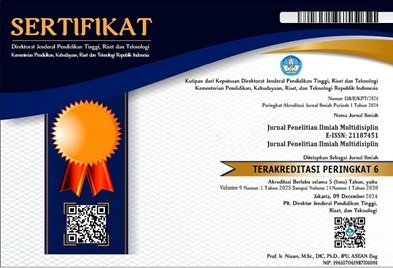DAMPAK PELANGGARAN KODE ETIK OLEH HAKIM MAHKAMAH KONSTITUSI DALAM PUTUSAN MK NOMOR 90/PUU-XXI/2023 TERHADAP KEADILAN DAN KEPERCAYAAN PUBLIK
Kata Kunci:
Mahkamah Konstitusi, Kode Etik Hakim, Pelanggaran Etika, Integritas Hakim, Akuntabilitas PeradilanAbstrak
Mahkamah Konstitusi (MK) sebagai lembaga negara yang memiliki peran strategis dalam sistem ketatanegaraan Indonesia, dituntut untuk menjunjung tinggi integritas dan profesionalisme hakim konstitusi. Kode etik hakim konstitusi menjadi pedoman moral dan perilaku yang harus dipatuhi. Namun, dalam perjalanannya, MK tidak luput dari kontroversi, salah satunya adalah Putusan MK Nomor 90/PUU-XXI/2023 yang diduga melanggar kode etik. Penelitian ini menggunakan metode penelitian normatif dengan pendekatan perundang-undangan dan pendekatan kasus. Hasil analisis menunjukkan bahwa hakim konstitusi diduga telah melanggar prinsip-prinsip dalam The Bangalore Principles of Judicial Conduct 2002 dan Sapta Karsa Hutama, seperti prinsip ketidakberpihakan, integritas, kecakapan dan kesetaraan, independensi, serta kepantasan dan kesopanan. Dampak dari pelanggaran tersebut adalah dijatuhkannya sanksi, seperti pemberhentian dari jabatan Ketua MK, larangan terlibat dalam penanganan perkara yang berpotensi konflik kepentingan, dan teguran lisan secara kolektif.Secara hukum, pelanggaran yang dilakukan oleh hakim konstitusi dapat dikategorikan sebagai pelanggaran terhadap UU No. 28 Tahun 1999 tentang Penyelenggara Negara yang Bersih dan Bebas dari Korupsi Kolusi Nepotisme. Untuk mencegah terulangnya kasus serupa di masa depan, diperlukan penguatan kode etik dan pedoman perilaku hakim, peningkatan transparansi dan akuntabilitas, serta perbaikan mekanisme pengawasan internal MK.
The Constitutional Court (MK) as a state institution that has a strategic role in the Indonesian constitutional system, is required to uphold the integrity and professionalism of constitutional judges. The code of ethics for constitutional judges is a moral and behavioral guideline that must be obeyed. However, in its journey, the Constitutional Court has not escaped controversy, one of which is the Constitutional Court Decision Number 90/PUU-XXI/2023 which allegedly violates the code of ethics. This research uses a normative research method with a statutory approach and a case approach. The results of the analysis show that constitutional judges are alleged to have violated the principles in The Bangalore Principles of Judicial Conduct 2002 and Sapta Karsa Hutama, such as the principles of impartiality, integrity, competence and equality, independence, and propriety and decency. The impact of these violations is the imposition of sanctions, such as dismissal from the position of Chief Justice of the Constitutional Court, prohibition of involvement in handling cases that have the potential for conflict of interest, and collective verbal reprimands. Legally, violations committed by constitutional judges can be categorized as violations of Law No. 28 of 1999 concerning State Administration that is Clean and Free from Corruption Collusion Nepotism. To prevent the recurrence of similar cases in the future, it is necessary to strengthen the code of ethics and code of conduct for judges, increase transparency and accountability, and improve the internal supervision mechanism of the Constitutional Court.





